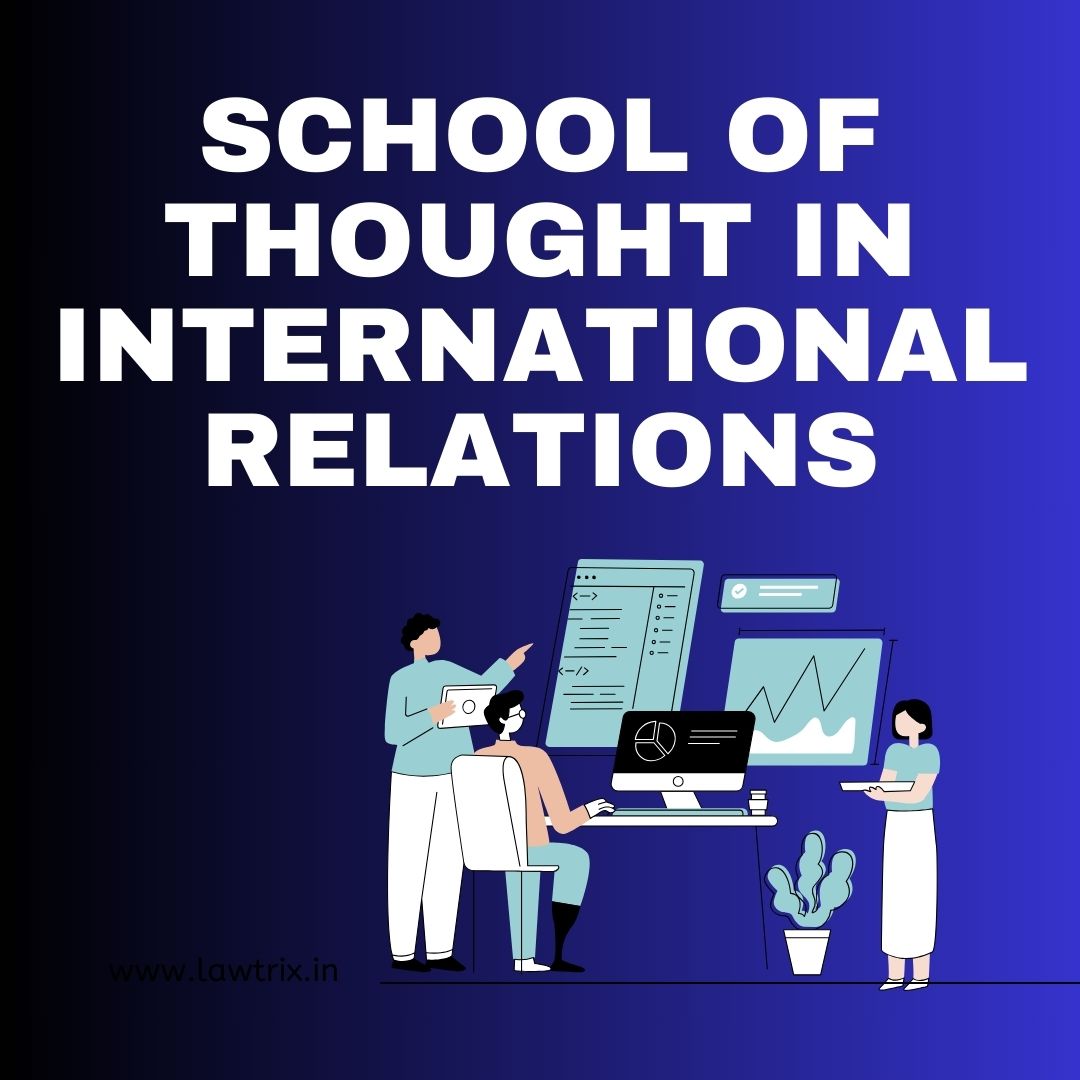


International Relations
(IR)
is a complex and dynamic field with various theoretical perspectives, often
referred to as "schools," that seek to explain the behavior of
states, non-state actors, and international systems.
International
relations (IR) are the interactions among sovereign states. The scientific
study of those interactions is also referred to as international studies,
international politics, or international affairs. In a broader sense, the study
of IR, in addition to multilateral relations, concerns all activities among
states—such as war, diplomacy, trade, and foreign policy—as well as relations
with and among other international actors, such as intergovernmental
organizations (IGOs), international nongovernmental organizations (INGOs),
international legal bodies, and multinational corporations (MNCs). There are
several schools of thought within IR, of which the most prominent are realism,
liberalism and constructivism.
International
relations is widely classified as a major subdiscipline of political science,
along with comparative politics, political theory, political methodology, and
public administration. It also often draws heavily from other fields, including
anthropology, economics, geography, law, philosophy, sociology, and history.
Here
are some prominent schools of thought in International Relations:
Realism:
Realism
is one of the oldest and most influential schools of thought in IR.
It
emphasizes the primacy of power, state sovereignty, and the pursuit of national
interests in international politics.
Realists
view the international system as inherently anarchic and characterized by
competition and conflict among states.
Liberalism:
Liberalism
focuses on cooperation, interdependence, and the importance of institutions in
managing international relations.
It
emphasizes the role of non-state actors, international organizations, and norms
in shaping behavior.
Liberals
are optimistic about the potential for peace and cooperation among states
through diplomacy and collective action.
Constructivism:
Constructivism
emphasizes the significance of ideas, identities, and social norms in shaping
international behavior.
It
argues that state interests and behavior are socially constructed and can
change over time through interaction and discourse.
Constructivists
focus on the role of language, culture, and historical narratives in shaping
international relations.
Marxism/Neo-Marxism:
Marxism
applies a materialist analysis to international relations, emphasizing economic
factors, class struggle, and imperialism.
It
critiques capitalism and the unequal distribution of wealth and power in the
international system.
Neo-Marxist
perspectives expand on classical Marxism by incorporating issues of identity,
culture, and globalization.
Feminism:
Feminist
IR theory examines gender dynamics and power relations in international
politics.
It
highlights the role of patriarchy, gender norms, and inequalities in shaping
state behavior and global governance.
Feminist
scholars advocate for the inclusion of women's voices, experiences, and
perspectives in IR scholarship and policymaking.
Critical Theory:
Critical
theory draws on various interdisciplinary perspectives, including
post-structuralism, post-colonialism, and critical sociology.
It
critiques power structures, inequality, and hegemonic discourses in
international relations.
Critical
theorists seek to uncover underlying power dynamics and challenge dominant
narratives through emancipatory scholarship.
Neorealism (Structural
Realism):
Neorealism,
also known as structural realism, builds upon classical realism but places
greater emphasis on the structure of the international system.
It
argues that the behavior of states is primarily shaped by the distribution of
power among them, rather than their internal characteristics or individual
leaders.
Neorealists
focus on systemic constraints and the balance of power as key determinants of
state behavior.
Neoliberalism:
Neoliberalism
shares some similarities with liberalism but places greater emphasis on the
role of markets, economic factors, and rational choice theory in international
relations.
It
advocates for free trade, economic interdependence, and the benefits of globalization.
Neoliberals
argue that states can achieve mutual gains through cooperation, even in the
absence of a central authority.
Post-structuralism:
Post-structuralism
challenges traditional approaches to IR by deconstructing language, discourse,
and power relations.
It
emphasizes the role of language and discourse in shaping identities, interests,
and perceptions in international politics.
Post-structuralists
question the existence of fixed meanings and universal truths, highlighting the
contingency and plurality of interpretations.
Environmentalism (Green
Theory):
Environmentalism
in IR focuses on the interactions between environmental issues and global
politics.
It
highlights the importance of ecological sustainability, resource scarcity, and
climate change as key factors shaping international relations.
Environmentalists
advocate for policies that promote environmental protection, sustainable
development, and global cooperation.
Global Governance:
Global
governance theory examines the emergence of new forms of governance beyond the
state, involving international organizations, networks, and regimes.
It
explores how global challenges such as climate change, terrorism, and pandemics
are addressed through multilateral cooperation and collective action.
Global
governance theorists analyze the effectiveness, legitimacy, and accountability
of global governance mechanisms.